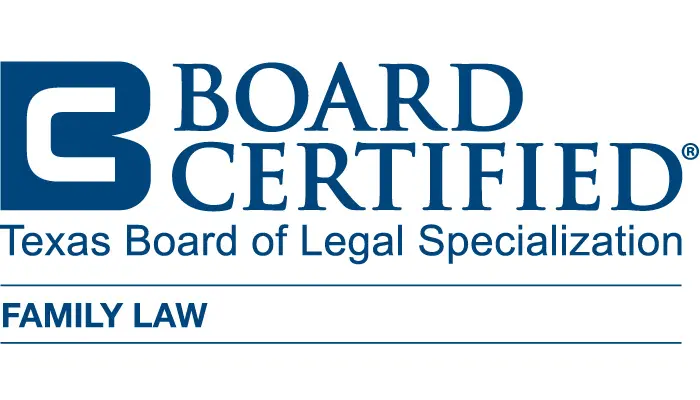Texas Paternity Attorneys

Protecting Your Parental Rights
For decades, claims regarding paternity largely boiled down to who could argue the most persuasive case in court. Today, that is not the case. With the introduction of blood and DNA tests, science allows paternity to be determined with virtually 100 percent accuracy. The result can mean a decisive victory for men who have been denied their parental rights and for women who have been unable to collect financial support from biological fathers who denied parentage. Legally determining the father is not as difficult as it used to be. In courts in Texas, proof of paternity is the only thing that will allow a court order to require a parent to pay child support. For many reasons, a consultation with a paternity lawyer in Texas is an important step for parents.
Determining Biological Parents in Texas
Even with scientific tests proving paternity, answering the question, “Who is the father?” is not always straightforward. In court, paternity will be acknowledged, presumed, or adjudicated. A father is presumed to be the parent if the parties are married at the time the child is born or if the father consented to be listed on the child’s birth certificate. A presumed father is assumed to be the father unless he or the mother proves otherwise in court. An adjudicated, presumed, or acknowledged father is legally obligated to support his children financially.
Other legal classifications of non-traditional parents include:
- Equitable Parent — When someone in the child’s life plays a parent-like role but is not an adoptive parent or biologically related to the child. An equitable parent is often a close family friend.
- Alleged Father — An unwed man who has a biological child is an alleged father (or unwed father) and is required to pay child support to the mother. Unwed fathers have rights to visitation and custody.
- Step Parent — When the mother or father legally weds a new spouse who is not biologically related to the child. It is not uncommon for stepparents to adopt their stepchildren.
In cases of Texas paternity, Goranson Bain Ausley lawyers have a wealth of experience helping clients prove or disprove claims of paternity — both with and without resorting to litigation. Our attorneys have more than 30 years of experience working in family law. With a little help from modern tests, our Texas paternity attorneys can help hold the father or mother of your child legally responsible for contributing financially. If you are an unmarried parent trying to establish parental rights or if you are a mother seeking to receive child support from an assumed father, do not delay in contacting an experienced paternity lawyer from our Austin, Dallas, Fort Worth, Granbury, Midland, Plano, or San Antonio office.
Texas Law Establishes Paternity Under Specific Conditions
Texas Family Code provides very specific conditions that create a presumption of paternity, including the following:
- A child is born during a marriage between the mother and the presumed father.
- A child is born before the 301st day after the termination of the marriage between the mother and presumed father, even if the marriage is declared invalid during that time period.
- A father voluntarily asserts paternity and either files the assertion in the vital statistics unit, is voluntarily named as the child’s father on the birth certificate, or promises in a record to support the child as his own.
- A father continuously resides in the household of a child for the first two years of the child’s life, representing to others that the child is his own.
None of these conditions applies to a private sperm donor who enters into a contract that ends the father/child relationship beyond the point of donation.
Since the law adds additional complications to the question of accepting or denying paternity, a paternity attorney in Texas may be needed to clarify your legal situation. Texas Assisted Reproduction statutes differ from the statutes in other states. As an example, Texas laws (Texas Family Code sections 160.751–160.763) have their own complexities that affect the rights of sperm donors or even married couples who use a sperm donor to add children to their families. As an example, a gestational agreement is only valid if a court enters an order validating the agreement (Texas Family Code Sec. 160.756 (c)). Thus, it’s important to consult with a Texas paternity lawyer to fully understand the laws and rights awarded to biological fathers.
Contact an Experienced Texas Paternity Attorney
If you have questions about your rights as a mother or father, contact us online or call us for a consultation with an experienced Texas paternity attorney who can help your case. Goranson Bain Ausley has seven office locations in Texas: Austin, Dallas, Fort Worth, Granbury, Midland, Plano, and San Antonio. Our knowledgeable Goranson Bain Ausley paternity lawyers in Texas can answer all of your questions and begin developing a legal strategy during your initial consultation. We look forward to hearing from you and helping you and your family.
Awards & Credentials
- Thomas P. Goranson 1997
- Thomas L. Ausley 1997
- Diana S. Friedman 1998
- Thomas A. Greenwald 2003
- Kathryn J. Murphy 2004
- Eric Robertson 2007
- Kelly Ausley-Flores 2009
- Kristal Thomson 2014
- Aimee Pingenot Key 2015
- Kristen A. Algert 2017
- P. Lindley Bain 2020
- Ryan R. Bauerle 2022
- Lindsey Obenhaus 2023
- Charla Davies 2024

- Angeline Lindley Bain 2015 2014 2013 2012 2011 2009 2008
- Hayley Collins Blair 2021 2018
- Kevin Davidson 2025
- Jeff Domen 2025
- Esther R. Donald 2025
- Diana S. Friedman 2017 2016 2015 2013
- Thomas P. Goranson 2011 2009 2008
- Thomas A. Greenwald 2022 2018 2012 2011 2009 2008
- Aimee Pingenot Key 2025 2024 2020 2019 2017
- Paula Larsen 2018 2017 2016 2015 2014 2013 2012 2011 2010 2008
- Beth E. Maultsby 2010
- Kathryn J. Murphy 2024 2023 2020 2019 2018 2017 2010 2009 2008
- Lindsey Obenhaus 2025 2024 2023 2022 2021
- Katie Flowers Samler 2020 2019 2018


- Thomas L. Ausley 1980
- Thomas P. Goranson 1980
- Gary L. Nickelson 1984
- Kathryn J. Murphy 1995
- Diana S. Friedman 1996
- Kristen A. Algert 1997
- Thomas A. Greenwald 1997
- Eric Robertson 1997
- Kelly Ausley-Flores 2000
- Curtis W. Harrison 2002
- Cindy V. Tisdale 2003
- Jeff Shore 2006
- Clint Westhoff 2006
- Jeff Domen 2009
- Kristal Thomson 2009
- Angel J. Berbarie 2010
- P. Lindley Bain 2012
- Aimee Pingenot Key 2012
- Kevin Davidson 2017
- Charla Davies 2017
- Rob Frazer 2018
- Ryan R. Bauerle 2018
- Hayley Collins Blair 2019
- Lindsey Obenhaus 2019
- Katie Flowers Samler 2019
- Jonathan James 2020
- Chris Nickelson 2021
- Chandler Rice Winslow 2023
- Kristiana Butler 2024
- Cassidy Pearson 2024
- Angelica Rolong Cormier 2024















































